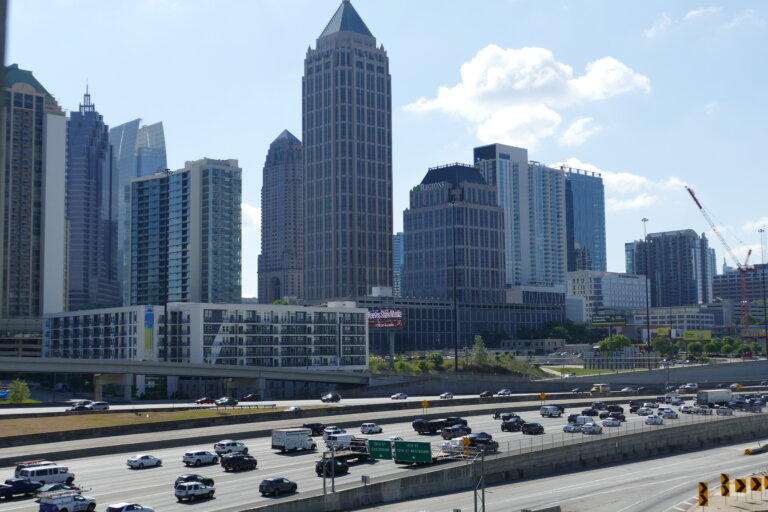
Caption
Traffic-weary Atlanta is no longer among the top 25 polluted cities for airborne soot, according to a report by the American Lung Association. But the city still received a failing grade for air quality.
Credit: John McCosh/Georgia Recorder


